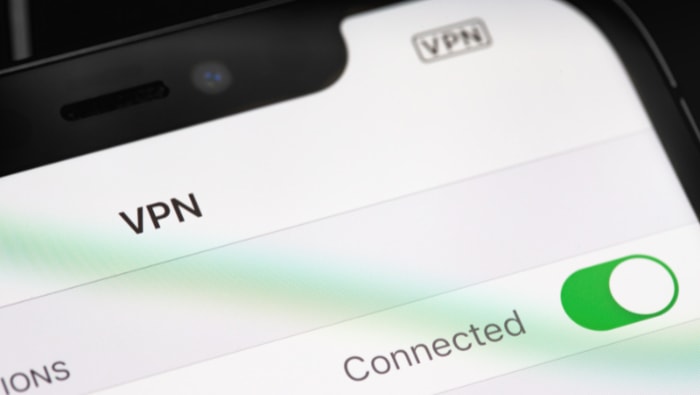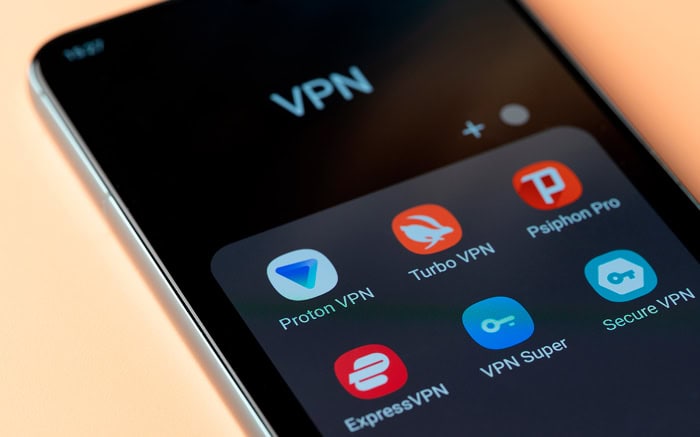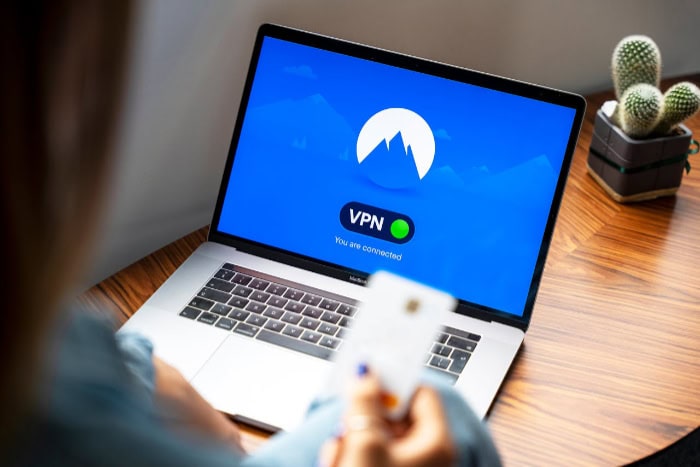Why You Need a VPN and How to Pick the Best One

Online privacy and security are no longer optional—they’re essential. Every click, search, and login leaves behind digital traces, making your personal data vulnerable to prying eyes.
Whether it’s advertisers tracking your habits, hackers targeting sensitive information, or even government surveillance, your online movements are constantly at risk. Fortunately, a VPN (Virtual Private Network) can safeguard your digital presence.
By encrypting your data and masking your online identity, a VPN creates a secure tunnel between you and the internet.
Beyond privacy, VPNs unlock practical benefits like accessing global content, securing public Wi-Fi connections, and protecting business communications. But with countless providers making bold promises, choosing the right one can feel overwhelming.
Understanding VPN Fundamentals
A Virtual Private Network (VPN) serves as a powerful tool to keep your online activities private, secure, and free from outside interference. It works by creating an encrypted connection between your device and the internet, effectively shielding your data from prying eyes.
While the concept may sound technical, the technology behind VPNs is designed to simplify and enhance your online experience.
How VPNs Work
At its core, a VPN functions by rerouting your internet connection through a server operated by the VPN provider. Instead of connecting directly to websites or services, your traffic first passes through this server, masking your actual IP address and location.
This process adds a layer of anonymity to your online presence, making it difficult for third parties to trace your activities back to you.
This rerouting is not just about privacy. It also allows users to bypass geographic restrictions by appearing as though they are accessing the internet from the server’s location.
For example, connecting to a server in another country may grant access to region-locked content not available locally.
Encryption and Tunneling
Encryption is the backbone of VPN security. It converts your data into unreadable code during transmission, ensuring that even if hackers, ISPs, or unauthorized parties intercept your connection, they cannot make sense of the information.
This adds a crucial layer of protection, especially when handling sensitive activities like online banking or entering personal details.
Tunneling is the process of encapsulating your internet traffic within a secure connection. Think of it as a protective tube that shields your data from exposure as it moves between your device and its destination.
By combining tunneling with encryption, VPNs safeguard your information while maintaining the speed and functionality of your connection.
Server Networks and Routing
The global network of servers operated by a VPN provider is what gives the service both flexibility and power. A high-quality provider typically has servers in multiple countries, enabling users to choose their preferred location for connecting to the internet.
This variety not only allows access to restricted content but also ensures performance by reducing congestion on any single server.
Routing plays a significant role here. When you connect to a VPN, your data’s path is altered, making it harder for third parties to monitor your exact location or activity.
Efficient server routing also ensures minimal disruption to your connection speed, a fundamental requirement for tasks like streaming or gaming.
VPN Protocols
The technology behind VPNs goes beyond just encryption and routing. Protocols determine how data is securely transmitted between your device and the VPN server.
Commonly used VPN protocols include OpenVPN, WireGuard, and IKEv2/IPSec. Each has its strengths, such as speed, security, or compatibility, and choosing a provider that offers multiple options is often a good idea—this way, you can tailor your connection to your specific needs.
WireGuard, for instance, is known for its speed and modern, lightweight design, making it ideal for gaming or high-bandwidth activities. OpenVPN, on the other hand, is a trusted, open-source protocol that balances reliability and robust encryption.
Security Features
Beyond the basics of encryption and protocols, VPNs often come equipped with additional features to protect users in different scenarios. A kill switch is a popular example, which automatically disconnects your device from the internet if the VPN connection drops.
This prevents your data from being exposed to your regular internet service provider.
Protection against DNS leaks is another important feature. This ensures that your DNS requests—which determine how web addresses are translated into IP addresses—remain private, further preventing online tracking.
Together, these tools reinforce the VPN’s core purpose: safeguarding users’ online presence.
Connection Types
Different VPN services support various connection types, catering to personal preferences and device requirements. Many users rely on traditional VPN client software installed on desktops, smartphones, or tablets, while others prefer browser extensions for quick, hassle-free access.
Some advanced configurations include router-level VPNs, where the entire network in a household or office is protected. This is particularly useful for families or businesses with multiple devices, as it eliminates the need to install VPN software on each individual device.
Another option is split tunneling, which allows users to decide which traffic to route through the VPN and which to leave unencrypted, offering greater control over how the service is used.
Essential VPN Benefits

A VPN is more than just a tool for tech-savvy users; it’s a practical solution for anyone who values online privacy and security. By encrypting your connection and concealing your identity, a VPN creates an invisible layer of protection between you and potential threats on the internet.
Beyond privacy, VPNs offer robust security features to guard against cyber risks and ensure your data remains safe, even in high-risk environments such as public Wi-Fi networks.
Privacy Protection
One of the primary reasons to use a VPN is its ability to safeguard your privacy in an era where personal data has become a valuable commodity. Every time you browse the web, your IP address acts as a digital fingerprint, revealing your location, browsing habits, and even personal interests.
A VPN masks your IP address, making you appear as if you’re accessing the internet from a different location. This prevents websites, advertisers, or even your internet service provider from tracking your online activities.
Another critical component of privacy protection is data encryption. A VPN encrypts your internet traffic, ensuring that any sensitive information—such as passwords or payment details—cannot be intercepted or decoded by unauthorized parties.
This level of encryption is especially vital when shopping online or using services that require you to input confidential data.
Additionally, a VPN conceals your activity, offering an extra layer of protection against invasive entities that might attempt to monitor what you’re doing online. This is particularly beneficial for maintaining privacy in countries or environments where internet freedom is restricted, or surveillance is pervasive.
Whether you’re streaming, browsing, or just staying connected, a VPN keeps prying eyes at bay.
Security Features
A VPN is also a powerful defense against numerous cyber threats that lurk online. Hackers frequently exploit vulnerabilities in networks to steal valuable data, but a VPN’s secure connection makes you a far less attractive target.
Since your data is encrypted and rerouted through a private server, cybercriminals face significant barriers when attempting to intercept your information.
Public Wi-Fi networks, while convenient, are notoriously insecure. Without proper safeguards, connecting to public Wi-Fi at coffee shops, airports, or hotels can expose you to risks like man-in-the-middle attacks, where attackers intercept communications between you and the network.
Using a VPN ensures that your connection on public networks is just as secure as your private home network, protecting you from such threats.
Another essential security advantage of a VPN is the prevention of data theft. Cybercriminals are constantly looking for ways to steal sensitive information, such as credit card numbers, login credentials, or confidential files.
By encrypting all your online traffic, a VPN makes it significantly harder for anyone to extract useful data, even if they manage to hack into the connection.
Common Use Cases

VPNs have become indispensable for a wide range of activities, blending convenience with protection to enhance both personal and professional use.
Whether you’re streaming your favorite shows, shopping online, managing sensitive business data, or collaborating with colleagues, a VPN adds a layer of security and flexibility that empowers you to engage with the internet safely.
Personal Applications
For everyday users, VPNs offer a mix of privacy, security, and access that enhances common online activities. Streaming and entertainment are among the most popular uses of VPNs.
Many streaming platforms restrict certain content based on geographic regions, but a VPN lets you bypass these barriers. By connecting to a server in a location where the content is available, you gain access to additional movies, TV shows, or sporting events without any restrictions.
This ability also comes in handy during travel, allowing you to access your usual content libraries from anywhere in the world.
Online shopping is another area where VPNs bring significant benefits. Prices for products, services, and even flights can vary based on your location, as businesses often adjust rates according to regional demand.
With a VPN, you can change your virtual location to compare prices in different countries, potentially saving money. Additionally, by encrypting your data, a VPN ensures that your payment details and personal information are secure while shopping on unfamiliar or overseas websites.
Social media privacy is also critical in the modern era of online communication. Social platforms often collect extensive data on users, tracking their behavior, preferences, and even locations.
A VPN prevents this by masking your IP address and encrypting your activity, making it harder for platforms to gather personal insights about you. For users in countries where social media access is censored or restricted, a VPN can restore free communication and access to online communities without fear of surveillance.
Professional Needs
Beyond personal use, VPNs are equally important in professional settings, especially in an era where remote work has become the norm. One of the most essential applications of a VPN is securing remote work environments.
When employees connect to company systems or databases over public or home networks, sensitive organizational data is at risk of interception. A VPN creates a secure connection, allowing employees to work from anywhere without exposing company information to potential threats.
Business data protection is another significant advantage. Many businesses rely on cloud-based platforms to store and manage sensitive data, ranging from client information to financial records.
A VPN ensures that this data remains encrypted during transmission, reducing the likelihood of breaches. In industries where confidentiality is non-negotiable, such as finance or healthcare, a VPN is often a critical part of the security infrastructure.
Secure file sharing is also a vital requirement for many professionals. Teams often collaborate across locations, sharing documents, designs, or other confidential materials that need to remain private.
A VPN ensures that these exchanges are encrypted, preventing unauthorized access or leaks. This security measure is particularly valuable when working with international partners or using platforms that don’t offer robust built-in encryption.
Personal and professional use cases demonstrate the versatility of VPNs. As internet usage becomes more integral to daily life and work, a VPN ensures that your activities remain private, secure, and accessible, regardless of where you are or what you’re doing online.
Selection Criteria

Choosing the right VPN requires careful consideration of several factors to ensure it meets your specific needs. While VPNs are often marketed with an array of features, it’s important to focus on practical aspects like performance, server availability, compatibility, and security.
A well-rounded VPN balances these attributes to deliver a service that is fast, reliable, and safe.
Technical Requirements
A VPN’s technical performance directly impacts your online experience. Speed and reliability are particularly important, as a slow connection can disrupt streaming, gaming, or even basic browsing.
High-quality VPNs invest in optimizing their server networks to minimize speed loss. Factors like server infrastructure and bandwidth allocation play a critical role in ensuring smooth performance, even when using resource-intensive applications.
Another technical aspect to evaluate is the number and location of servers offered by the VPN provider. Broad server coverage allows you to access content from different regions while also providing flexibility in selecting servers that offer optimal performance.
A large network is especially important if you need consistent access to region-specific services or lower latency for activities like gaming.
Device compatibility is equally vital. The best VPNs are designed to work seamlessly across various devices and operating systems, ensuring you can protect smartphones, laptops, tablets, and even smart TVs.
Some services go a step further by supporting routers, making it possible to secure your entire home network. Checking whether a VPN supports multiple simultaneous connections is also a smart move, as it allows you to protect all your devices under a single subscription.
Security Standards
Security is one of the central reasons people turn to VPNs, so a service’s encryption and safety protocols should be a top priority. A reliable VPN uses advanced encryption methods, such as AES-256, to keep your data safe while it’s transmitted over the network.
Secure encryption ensures that even if hackers intercept your connection, they won’t be able to decipher the information. The protocols a VPN uses, such as WireGuard, OpenVPN, and IKEv2/IPSec, also contribute to its overall security and performance.
Another hallmark of a trustworthy VPN is its no-logs policy. This ensures that the provider does not store records of your activity, browsing history, or connection details.
A strong no-logs policy protects your anonymity, even if the VPN provider is subject to external requests for user data. Make sure to choose a service that has a transparent privacy policy and a proven history of respecting user confidentiality.
The inclusion of features like a kill switch adds an extra layer of protection. A kill switch automatically disconnects your device from the internet if the VPN connection drops unexpectedly.
This prevents your real IP address and unencrypted data from being exposed during brief periods of disconnection. Such features ensure that your privacy and security are maintained at all times, even in scenarios where you might not notice a temporary connection issue.
Considering both technical performance and robust security features ensures that the VPN you choose is not only practical but also trustworthy. A service that excels in these areas will offer you a secure and seamless online experience, no matter how you use it.
Provider Evaluation

Finding the right VPN isn’t just about technical features and security; the quality of service and overall value offered by the provider are just as crucial. A reliable VPN should deliver consistent performance, offer responsive customer support, and continue evolving with regular updates.
At the same time, pricing, feature sets, and subscription options should align with your budget and needs.
Service Quality
A VPN’s service quality can significantly impact your experience. Connection reliability is a primary factor to assess.
A dependable VPN minimizes disruptions with stable and consistent performance, ensuring your connection doesn’t drop when streaming, browsing, or working remotely. This reliability is particularly important for activities like video conferencing or gaming, where interruptions can be frustrating or disruptive.
Customer support is another strong indicator of service quality. Issues with installation, configuration, or troubleshooting can arise, and timely assistance from a responsive support team makes a significant difference.
Look for providers that offer multiple support channels, such as live chat, email, or detailed guides, as these resources can resolve problems quickly and efficiently.
Frequent updates highlight a provider’s commitment to maintaining their service. Regular software updates improve functionality, fix bugs, and address security vulnerabilities.
This is especially important in the cybersecurity space, where new threats emerge regularly. A provider that actively improves its software reflects a proactive approach, keeping users protected and ensuring reliable performance.
Value Assessment
The value of a VPN comes down to how well it balances its cost with the features offered. Pricing models vary significantly between providers, and it’s worth comparing them to ensure you’re not overpaying for services you don’t need.
Monthly plans tend to be more expensive but offer flexibility, while long-term plans often provide significant discounts for those willing to commit upfront.
Feature sets are another core component of value. While most VPNs include standard privacy tools like encryption and IP masking, some go further by offering extras such as split tunneling, ad-blocking, or specialized servers optimized for streaming or gaming.
Providers like ProtonVPN, Mullvad, and Windscribe are often highly recommended for their reliable security, transparency, and user-friendly features. Each offers unique strengths, such as Mullvad’s strong focus on privacy, ProtonVPN’s free tier with robust offerings, and Windscribe’s flexibility for both beginners and advanced users.
Subscription flexibility is also worth considering. Many users appreciate providers that offer multiple payment options and the ability to cancel or switch plans easily.
Free trials or money-back guarantees are also great indicators of a provider’s confidence in their service, giving you a risk-free opportunity to test it out.
Conclusion
A VPN is more than just a tool for online privacy—it’s a crucial safeguard that enhances security, unlocks internet freedom, and protects sensitive information.
From ensuring private browsing and shielding data on public networks to providing access to restricted content and securing remote work, the benefits of a VPN are both practical and far-reaching.
Selecting the right VPN involves evaluating factors such as performance, server coverage, compatibility, and robust security features like encryption protocols and no-logs policies.
Quality service and fair pricing also play a vital role in finding a provider that aligns with your needs. By prioritizing speed, reliability, and user-friendly options, you can ensure a seamless experience while staying protected.
Investing in a VPN is investing in your digital safety, providing peace of mind in today’s online environment.


